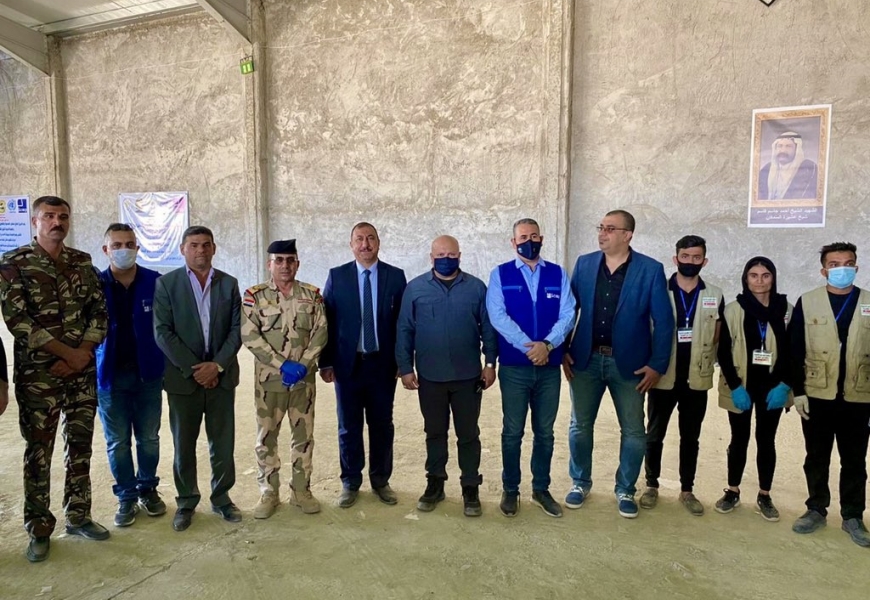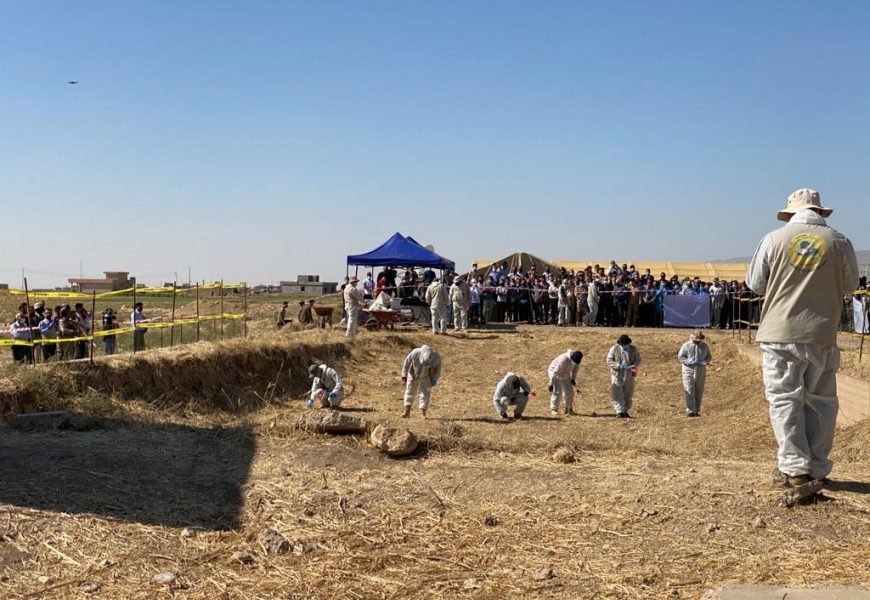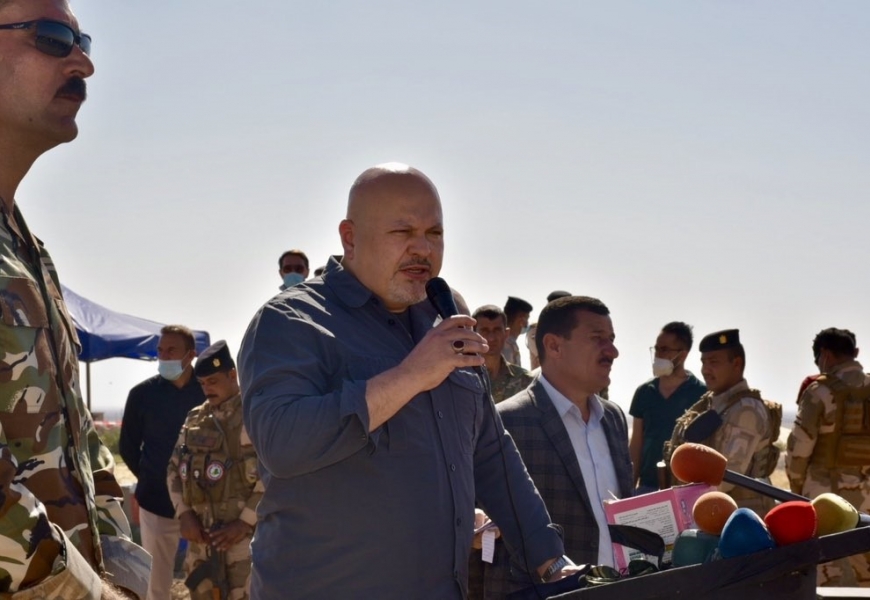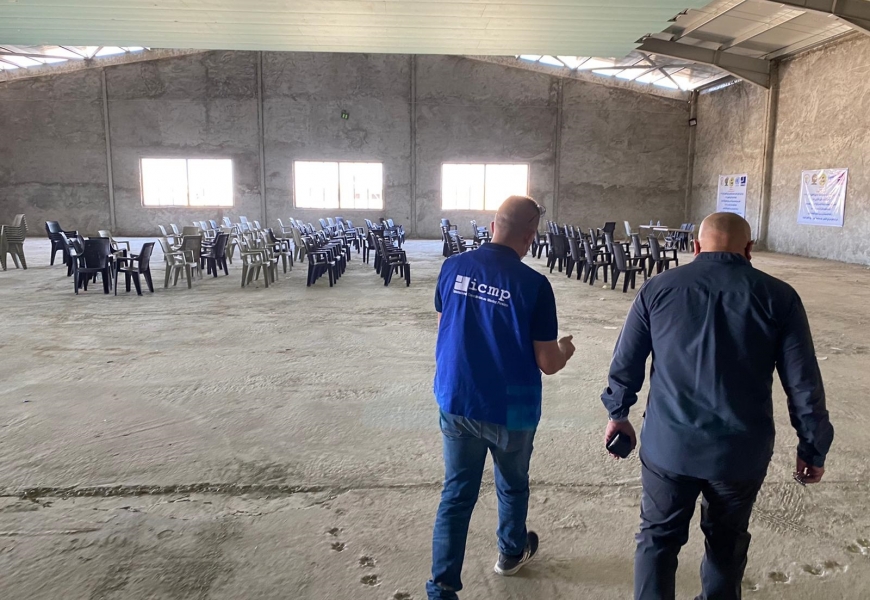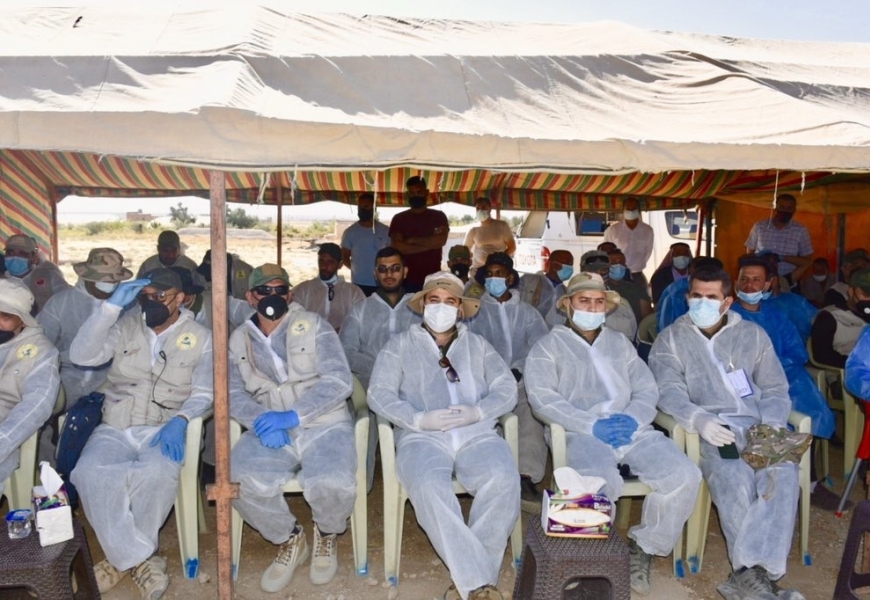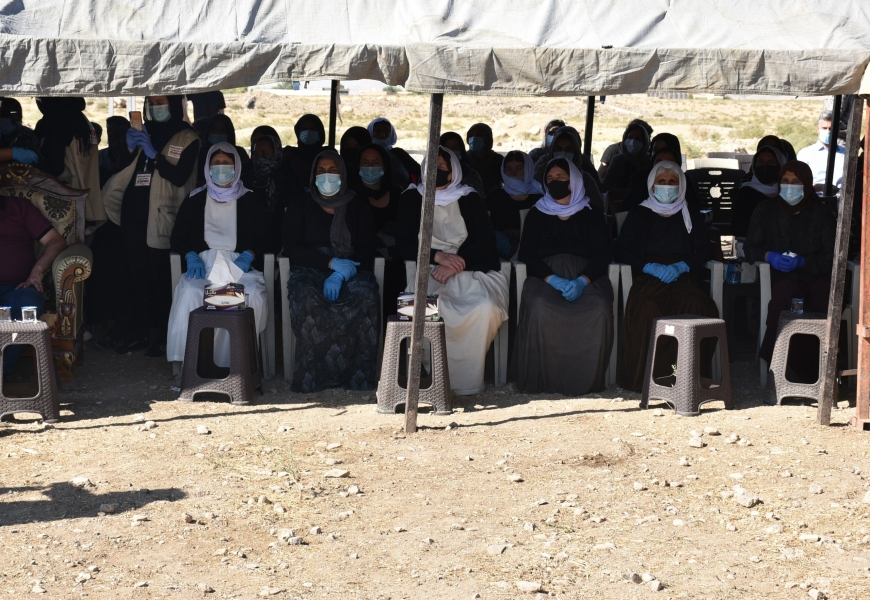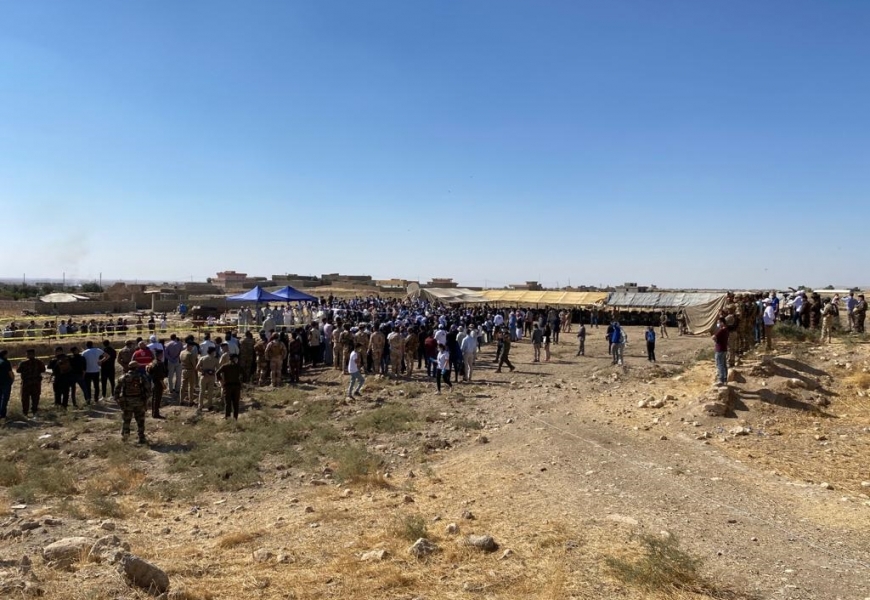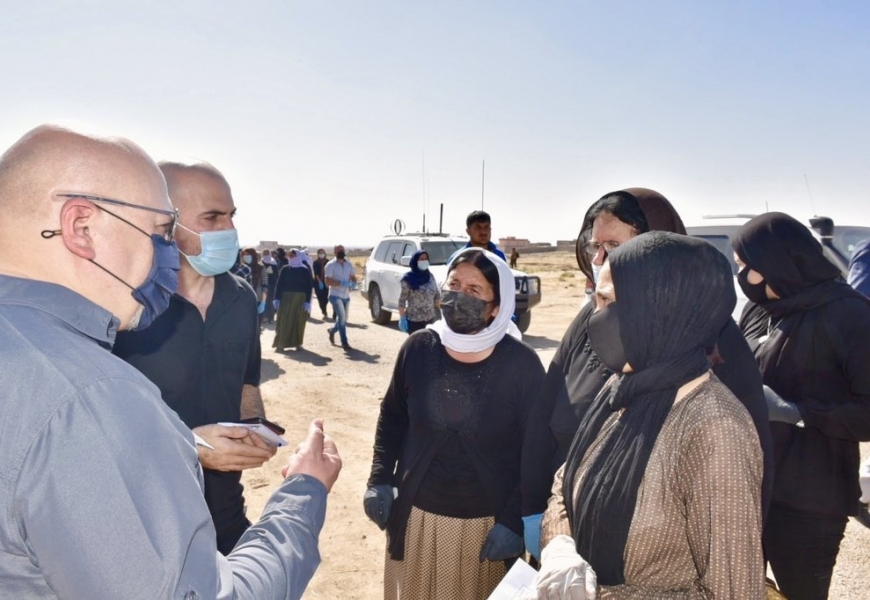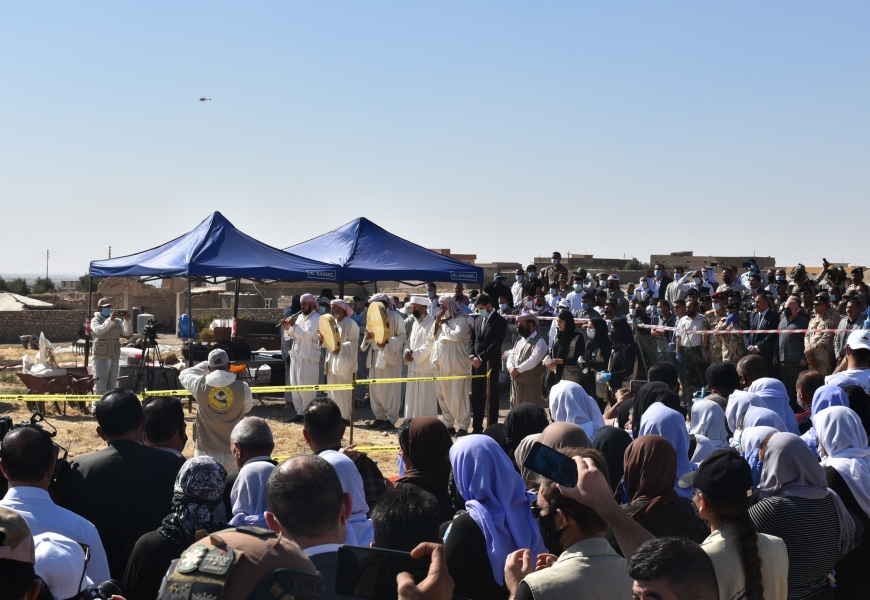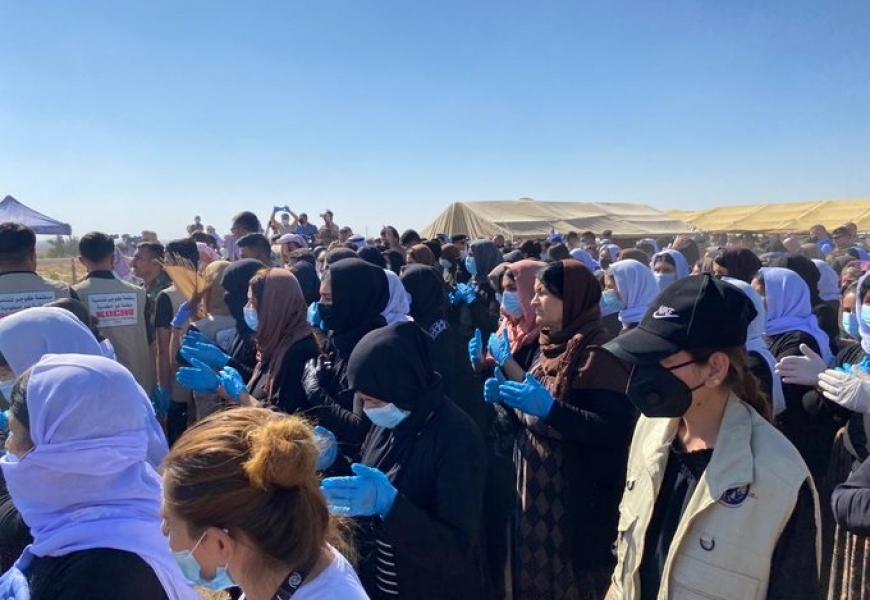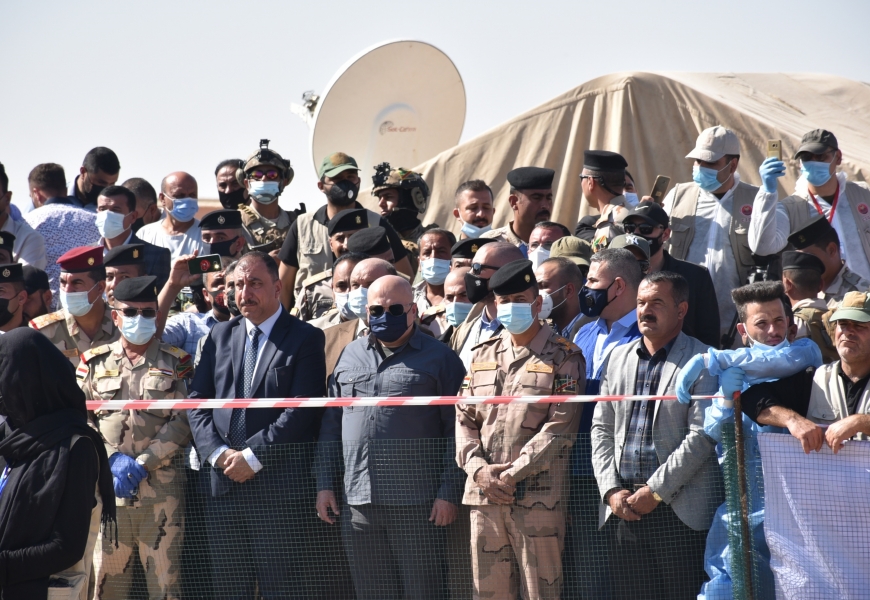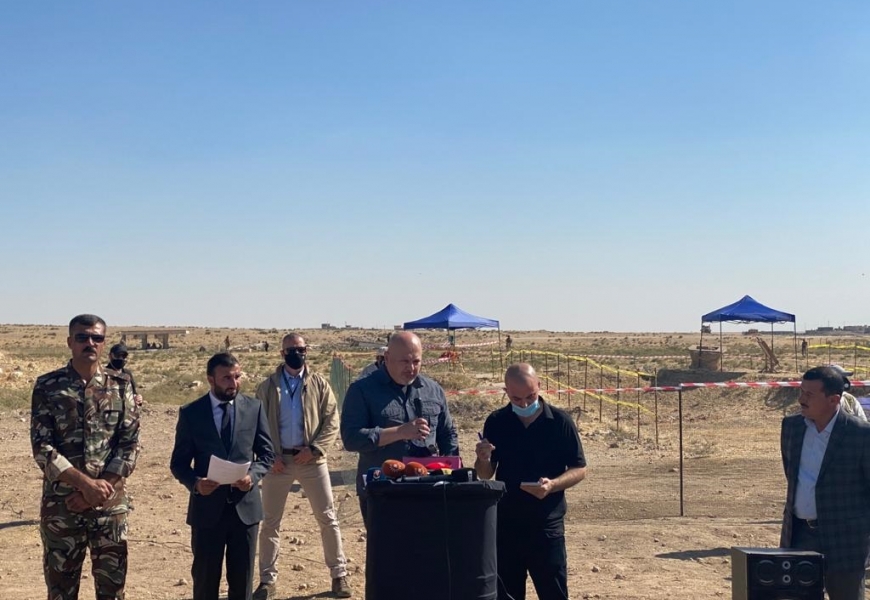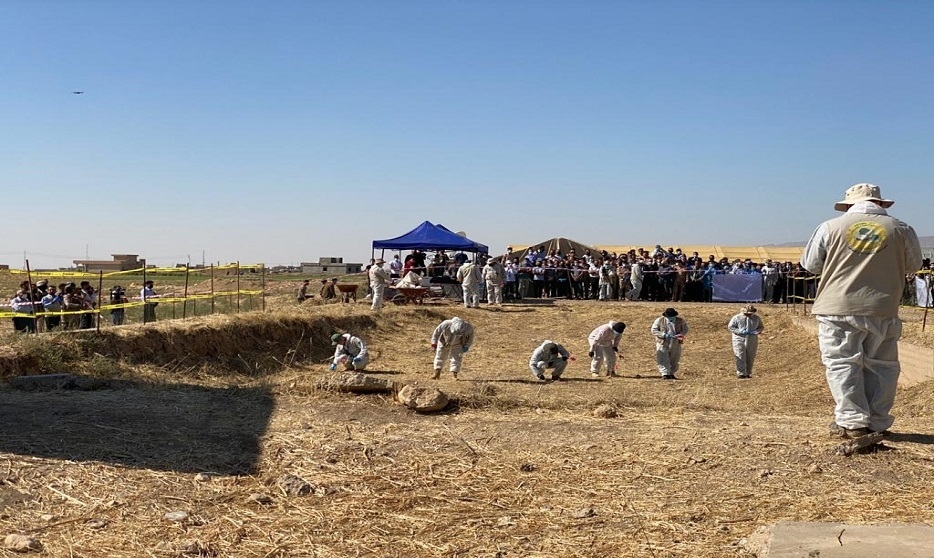Government of Iraq Resumes Exhumation Activities; Opens Two New Yazidi Mass Graves from ISIL
Sinjar, 28 October 2020 — After pausing activities due to the COVID-19 pandemic, Iraqi authorities have resumed the exhumations of mass graves, with support from the United Nations Investigative Team to Promote Accountability for Crimes Committed by Da’esh/ISIL (UNITAD) and the International Committee for Missing Persons (ICMP), and in cooperation with the International Organization for Migration (IOM) and the Yazda Organization.
On Saturday (24/10) Iraqi experts from the Mass Graves Directorate (MGD), under the leadership of Mr. Dia’ Karim Sa’idi, and the Medico-Legal Directorate (MLD), under the leadership of Dr. Zeid Ali Abbas, started exhumations in the mass graves left by ISIL in Solagh and Kojo, Ninewa Governorate.
Representatives of the Government of Iraq, the National Coordination Committee (NCC), the Yazidi community, UNITAD, ICMP, and IOM were in attendance. Also attending were around 300 people, including many relatives of missing persons. The ceremony and operations were held under appropriate protection by the security forces.
During his speech at the exhumations ceremony Mr. Saad Abdali, Member of the Advisory Committee at the Prime Minister Office and Head of Coordination in the NCC, affirmed the Government of Iraq’s dedication to honoring the victims and attending to this tragedy with the due respect and reverence it deserves. He announced that the Government of Iraq has made future plans to open all mass graves and honor all the martyrs. He added: “as we stand today upon these pure bodies, and in front of the families of the victims, we bow in respect and honor of your gracious sacrifices, full of hope that this cruel experience becomes a starting point for us to come together to build our homeland.”
In his speech, Special Adviser and Head of UNITAD Karim A. A. Khan QC indicated that: “the exhumations attest to the close cooperation between the Government of Iraq and all partners, including the United Nations organizations.” He stressed the international community’s commitment to achieve justice for the victims of ISIL and their families. He also highlighted the important work that MGD and MLD are doing for the families and the accountability they call for, reaffirming that UNITAD — with international grants from the United States, the United Kingdom, Germany, Netherlands, the European Union and others — will continue to support the capacity building of national Iraqi forensic teams including the investigations and exhumation operations they conduct.
ICMP Iraq Program Deputy Head Fawaz Abdulabbas said:
“All of us here hope that the work that begins today will ease the pain for some of the many Yezidi families with missing relatives by unearthing the remains of their loved ones. ICMP supports Iraq’s efforts to secure the rights of Yazidi victims of Da’esh crimes through proper investigations and DNA -based identifications. These efforts are important, not only to the many families who suffer every day because relatives are missing, but to society as a whole. Accounting for the missing is an investment in peace and stability.”
DNA Sampling
The Iraqi authorities are reaching out to families in the Sinjar area, inviting those with missing relatives to consider offering blood samples. DNA from these blood samples will be compared to DNA extracted from human remains found in the mass graves. Authorities will then use these results to determine kinship between victims found in the graves and surviving families. Blood samples are to be collected this week in the Kojo Primary School hall and later in Sinjar Hospital.
Psychosocial Support
Exhumations are painful processes that are likely to trigger a wide range of difficult emotions such as sadness, anxiety, anger, loneliness or fear. In anticipation of the emotional burden, UNITAD’s psychology team assisted with the coordination of psychosocial support to families and the communities through direct involvement of Yazda and IOM. IOM’s MHPSS team arranged discussion groups with the community members to ascertain their expectations and needs prior to the exhumation day. IOM also conducted a training on psychological first aid to prepare the staff who were deployed to provide support on the day. Individual mental health and psycho-social support was provided by over 20 of Yazda and IOM’s psychologists and psychosocial workers on site, to help alleviate the distress of the bereaved families. The MHPSS teams were deployed to the area throughout the day to provide emotional and practical support to bereaved families.
The Iraqi teams of experts from MDG and MLD will continue to work in Solagh and Kojo mass graves in the coming weeks until the conclusion of the first stages of exhumations. The remains will be transported to specialized labs in Baghdad to be preserved and accurately analyzed before identifying the victims. The remains of the victims will then be returned to their families, giving them the opportunity to lay them to rest appropriately and according to traditions. ICMP and UNITAD work with the MGD and MLD to ensure the process is conducted according to international standards.


